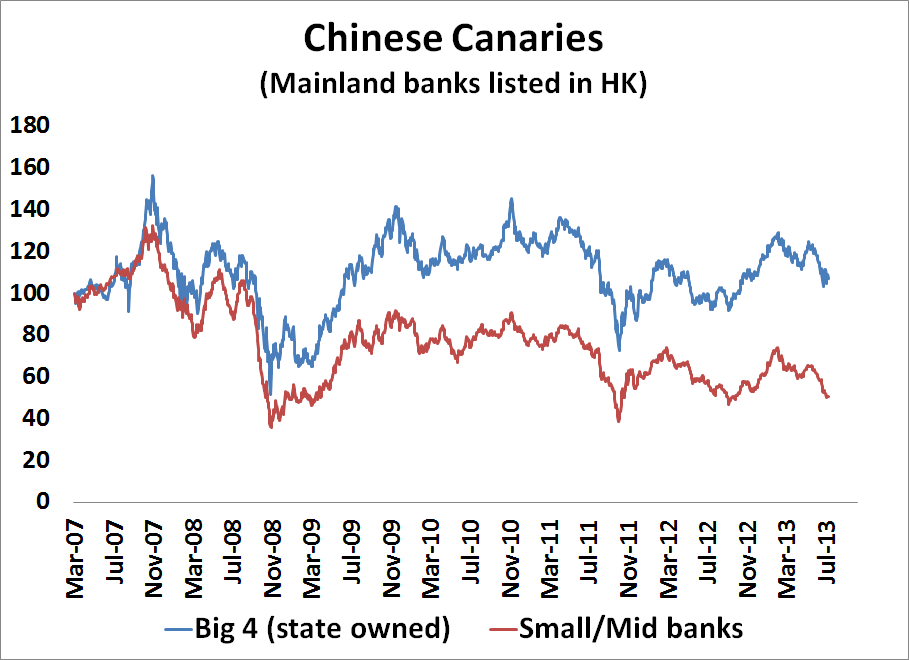It appears that the current Chinese government is actually trying to engineer a slowdown. They have stated that given a choice between growth and financial stability, they would pick the latter. Moreover, the authorities have cracked down on the shadow banking system by squeezing the smaller lenders to the point that the world became concerned about a liquidity crisis in China. Zero Hedge in its usual fit of hyperbole referenced a Bloomberg story entitled China Cash Squeeze Seen Creating Vietnam-Size Credit Hole:
China’s money-market cash squeeze is likely to reduce credit growth this year by 750 billion yuan ($122 billion), an amount equivalent to the size of Vietnam’s economy, according to a Bloomberg News survey.
The ZH post went on to rhetorically ask [emphasis added]:
[O]ne question that Bloomberg did not answer is just why is China engaging in the kind of counter-monetarist activity, that would result in an epic market collapse were it to take place in the US, Europe, the UK, Japan, or any other "developed" country whose growth now relies exclusively on central bank generosity.
Presenting Exhibit A: China's residential real estate prices, via JPM: 
So there you have it: no matter what China has attempted, no matter how much it has punished the Shanghai Composite, it has been completely unable to offset the endogenous and/or exogenous (Fed, ECB, BOJ hot money) credit from sending the Chinese housing bubble into absolutely stratospheric levels.
It is this bubble that the PBOC is doing all it can to deflate gradually and controllably, lest it pops in the biggest out of control bubble burst in developing market history.
I wrote in January that one way to keep an eye out for signs of financial stress is to watch the price action of the shares of the Big Four state-owned banks listed in Hong Kong (see The canaries in the Chinese coalmine). The prices of these banks would be a real-time market signal of the degree of stress occurring in China's financial system. The Big Four consists of:
- Agricultural Bank of China Limited (1288.HK)
- Bank of China (3988.HK)
- Industrial and Commercial Bank of China Limited (1398.HK)
- China Merchants Bank Co., Ltd. (3968.HK)
- Bank of Communications Co., Ltd (3328.HK)
- China CITIC Bank Corporation Ltd (0998.HK)
- China Merchants Bank Co., Ltd (3968.HK)
- China Minsheng Banking Corp. Ltd (1988.HK)
- Chongqing Rural Commercial Bank Co Ltd (3618.HK)

Bottom line
Disclosure: Cam Hui is a portfolio manager at Qwest Investment Fund Management Ltd. ("Qwest"). This article is prepared by Mr. Hui as an outside business activity. As such, Qwest does not review or approve materials presented herein. The opinions and any recommendations expressed in this blog are those of the author and do not reflect the opinions or recommendations of Qwest.
None of the information or opinions expressed in this blog constitutes a solicitation for the purchase or sale of any security or other instrument. Nothing in this article constitutes investment advice and any recommendations that may be contained herein have not been based upon a consideration of the investment objectives, financial situation or particular needs of any specific recipient. Any purchase or sale activity in any securities or other instrument should be based upon your own analysis and conclusions. Past performance is not indicative of future results. Either Qwest or Mr. Hui may hold or control long or short positions in the securities or instruments mentioned
